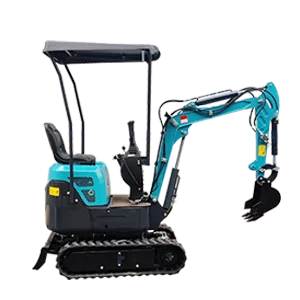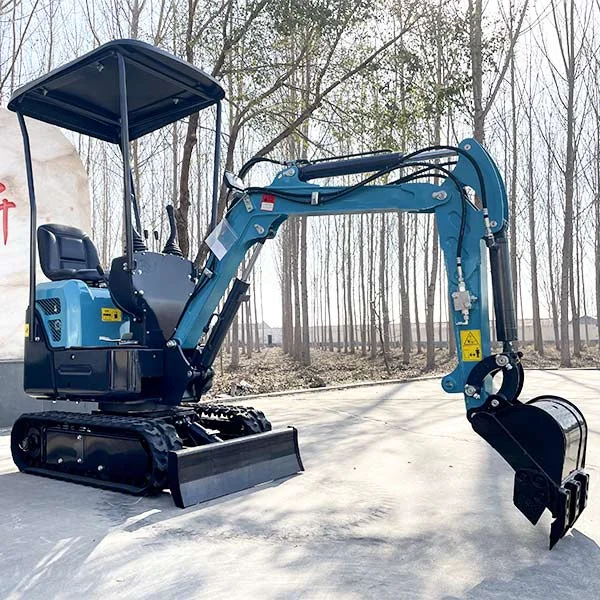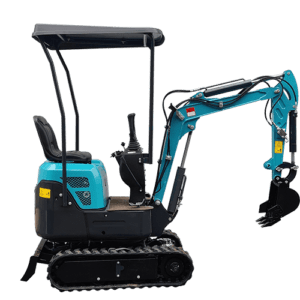Welcome to My Blog!
Before we dive into the content, I’d love for you to join me on my social media platforms where I share more insights, engage with the community, and post updates. Here’s how you can connect with me:
Facebook: https://www.facebook.com/profile.php?id=100072217509763
LinkedIn: https://www.linkedin.com/company/74949059/admin/dashboard/
YouTube:https://www.youtube.com/@tractormanufacturer-lc5qz
TikTok: https://www.tiktok.com/@tractormanufacturer
Now, let’s get started on our journey together. I hope you find the content here insightful, engaging, and valuable.
Introduction
When tackling construction, landscaping, or renovation projects, selecting the right equipment is crucial for efficiency, cost-effectiveness, and overall success. Among the various types of machinery available, the 1-ton mini excavator stands out as a versatile and powerful tool suitable for a wide range of applications. Whether you’re working in a confined urban space or need to perform detailed tasks in a larger project, a 1-ton mini excavator can offer the perfect balance of size, power, and maneuverability. In this blog, we will explore why a 1-ton mini excavator may be the ideal choice for your next project, highlighting its benefits, uses, and considerations.
Understanding the 1-Ton Mini Excavator

What is a 1-Ton Mini Excavator?
A 1-ton mini excavator is a compact piece of construction equipment designed for light to medium-duty tasks. It typically weighs around 1 ton (approximately 2,200 pounds) and is equipped with a boom, dipper, and bucket, allowing it to perform various functions such as digging, trenching, and grading. Despite its small size, a 1-ton mini excavator packs a powerful punch, making it a popular choice for both professional contractors and DIY enthusiasts.
Key Features of a 1-Ton Mini Excavator:
- Compact Size: Ideal for working in tight spaces where larger equipment would be impractical.
- Versatility: Can be equipped with different attachments for various tasks, including digging, drilling, and demolition.
- Ease of Transport: Small enough to be easily transported on a trailer or flatbed truck, reducing logistical challenges.
- User-Friendly Controls: Typically features intuitive controls, making it accessible to operators with varying levels of experience.
Common Applications of a 1-Ton Mini Excavator
The versatility of a 1-ton mini excavator makes it suitable for a wide range of applications across different industries. Some of the most common uses include:
- Landscaping: Perfect for tasks like digging garden beds, planting trees, and creating water features.
- Residential Construction: Ideal for small-scale excavation tasks, such as foundation work, trenching for utilities, and site preparation.
- Demolition: Can be used for breaking up small concrete structures or clearing debris in confined areas.
- Agriculture: Useful for tasks like digging irrigation ditches, clearing land, and building small ponds.
- Utility Work: Suitable for installing underground utilities, such as water lines, gas lines, and electrical conduits.
Benefits of Using a 1-Ton Mini Excavator
Maneuverability and Accessibility
One of the most significant advantages of using a 1-ton mini excavator is its exceptional maneuverability. Its compact size allows it to navigate through tight spaces and work in areas where larger machinery cannot reach. This makes it particularly useful for urban construction projects, landscaping in residential areas, and any task that requires precision in confined spaces.
Maneuverability Benefits:
- Navigating Narrow Spaces: Easily fits through narrow gates, doorways, and between buildings.
- Working on Delicate Surfaces: Causes less ground disturbance, making it suitable for working on lawns, gardens, and finished surfaces.
- Precision Work: Allows for accurate digging and grading in areas where space is limited.
Cost-Effectiveness
Operating costs are a critical consideration in any project, and the 1-ton mini excavator offers significant cost advantages. Its smaller size means it consumes less fuel, requires less maintenance, and generally has lower operating costs compared to larger excavators. Additionally, because it can be transported easily, there are fewer logistical expenses involved in moving the equipment to and from job sites.
Cost-Effectiveness Highlights:
- Fuel Efficiency: Consumes less fuel, reducing overall project costs.
- Lower Maintenance Costs: Fewer moving parts and less wear and tear translate to lower maintenance expenses.
- Reduced Transportation Costs: Easy to transport without the need for specialized heavy-duty trailers or permits.
Table: Comparison of 1-Ton Mini Excavator vs. Larger Excavators
| Feature | 1-Ton Mini Excavator | Mid-Size Excavator | Large Excavator |
|---|---|---|---|
| Weight | ~2,200 lbs | 15,000-20,000 lbs | 45,000+ lbs |
| Ideal Applications | Landscaping, Residential | Commercial, Industrial | Large-scale Construction |
| Fuel Consumption | Low | Moderate | High |
| Maneuverability | High | Moderate | Low |
| Operating Costs | Low | Moderate | High |
| Ease of Transport | Easy | Moderate | Difficult |
| Precision Work | Excellent | Good | Limited |
| Ground Disturbance | Minimal | Moderate | Significant |
Versatility with Attachments
Another reason to choose a 1-ton mini excavator for your project is its versatility, which is enhanced by the availability of various attachments. These attachments allow the mini excavator to perform a wide range of tasks beyond simple digging. For instance, you can equip it with an auger for drilling holes, a hammer for breaking concrete, or a grapple for handling materials.
Popular Attachments:
- Buckets: Available in different sizes for digging, trenching, and grading.
- Augers: Ideal for drilling holes for fence posts, trees, or foundations.
- Hydraulic Hammers: Used for breaking up concrete or asphalt.
- Grapples: Useful for handling debris, logs, and other materials.
How to Choose the Right 1-Ton Mini Excavator

Assessing Your Project Needs
Before choosing a 1-ton mini excavator, it’s essential to assess the specific needs of your project. Consider the following factors:
- Type of Work: Determine the tasks the excavator will need to perform, such as digging, grading, or demolition.
- Site Conditions: Evaluate the terrain, space constraints, and accessibility of your work site.
- Required Attachments: Identify the attachments you’ll need to complete your project efficiently.
Assessment Tips:
- Site Inspection: Conduct a thorough site inspection to identify potential challenges.
- Task List: Create a detailed list of tasks to ensure the excavator meets all your project requirements.
- Consult Experts: If you’re unsure about the best equipment for your project, consult with a professional.
Comparing Models and Features
Not all 1-ton mini excavators are created equal, and it’s important to compare models and features to find the one that best suits your needs. Consider the following when comparing options:
- Engine Power: Check the horsepower rating to ensure the excavator has enough power for your tasks.
- Hydraulic System: A robust hydraulic system is crucial for smooth operation and attachment compatibility.
- Control Systems: Look for models with user-friendly controls that allow for precise operation.
Key Features to Compare:
- Horsepower: Ensures the excavator can handle heavy-duty tasks.
- Hydraulic Flow: Determines the efficiency and power of attachments.
- Cab Comfort: A comfortable cab with good visibility enhances operator efficiency.
Conclusion
A 1-ton mini excavator is a powerful and versatile tool that can significantly enhance the efficiency and effectiveness of your project, especially in confined spaces or on small to medium-sized job sites. With its maneuverability, cost-effectiveness, and the ability to use various attachments, this compact machine is a valuable addition to any contractor’s equipment lineup. By carefully assessing your project needs and comparing different models, you can choose the best 1-ton mini excavator that will help you achieve your goals efficiently and effectively.
FAQ
What are the main benefits of using a 1-ton mini excavator?
The main benefits include excellent maneuverability in tight spaces, lower operating costs, and the versatility to handle various tasks with different attachments.
Can a 1-ton mini excavator handle heavy-duty tasks?
While it’s ideal for light to medium-duty tasks, a 1-ton mini excavator can perform certain heavy-duty tasks, especially when equipped with the right attachments.
How does a 1-ton mini excavator compare to larger excavators?
A 1-ton mini excavator offers better maneuverability and lower operating costs but has less power and capacity compared to larger excavators, making it ideal for smaller projects.
What attachments are available for a 1-ton mini excavator?
Common attachments include buckets, augers, hydraulic hammers, and grapples, allowing the excavator to perform tasks such as digging, drilling, breaking, and material handling.
How do I transport a 1-ton mini excavator?
A 1-ton mini excavator is easy to transport using a standard trailer or flatbed truck, making it convenient for moving between job sites.






-1.png)